Sociology Essay: Personal Biography and Sociological Imagination
VerifiedAdded on 2022/08/12
|5
|933
|21
Essay
AI Summary
This essay applies C. Wright Mills' concept of the sociological imagination to the author's personal experiences in Canada, focusing on the issue of racism within a multicultural society. The author reflects on how their understanding of social forces, particularly prejudice against Muslims, has evolved through the application of sociological imagination. The essay begins by explaining Mills' definition of sociological imagination as the ability to connect individual experiences with broader societal and historical contexts. The author then shares personal observations of racism, discusses the influence of societal attitudes and political policies, and analyzes how the sociological imagination allows for a more critical and humanistic perspective. The essay emphasizes the importance of sociological imagination in understanding social issues and promoting a more informed and empathetic approach to complex social phenomena. The author highlights how their own views have been transformed by the ability to detach from self-centered perspectives and consider the wider social forces at play.
1 out of 5
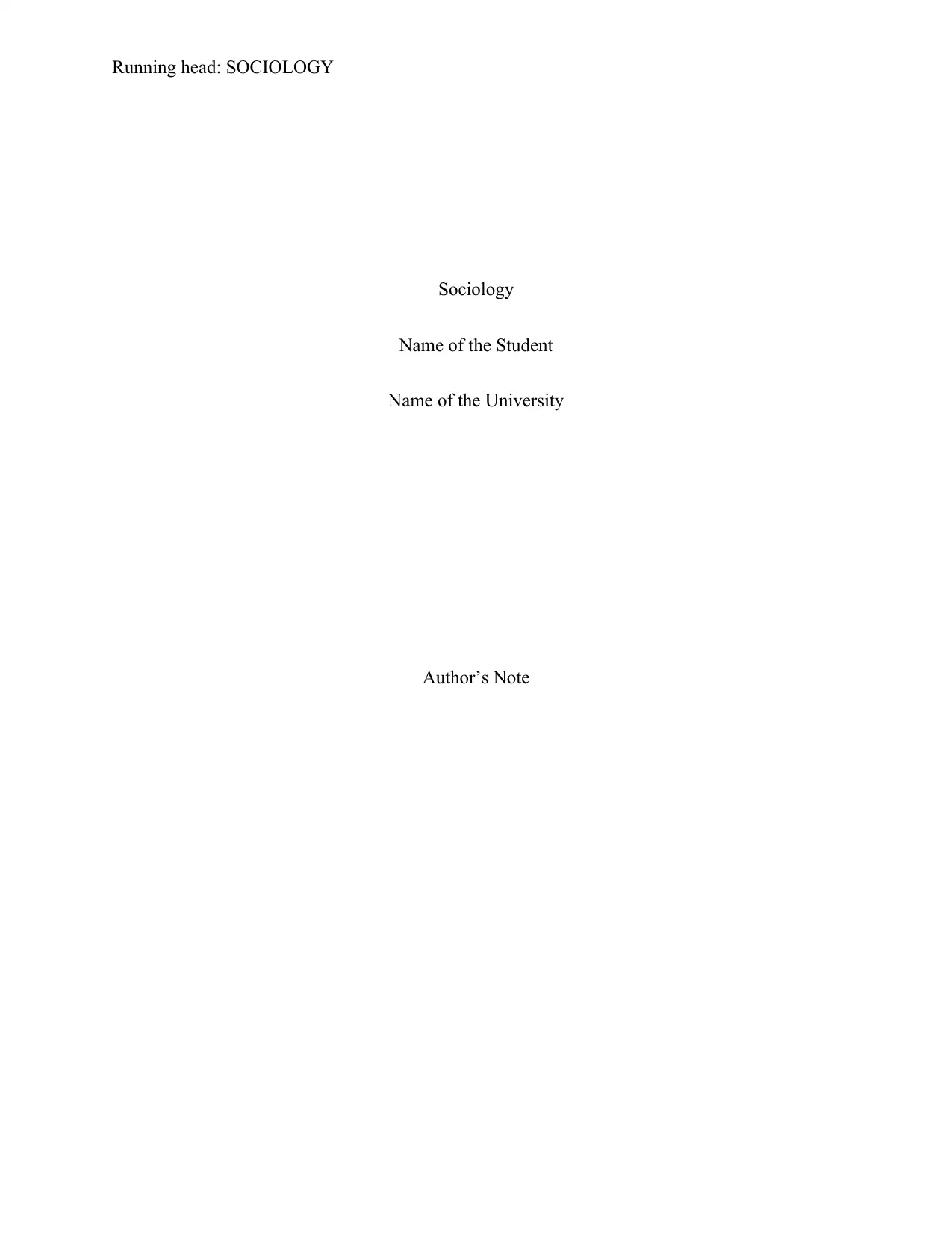
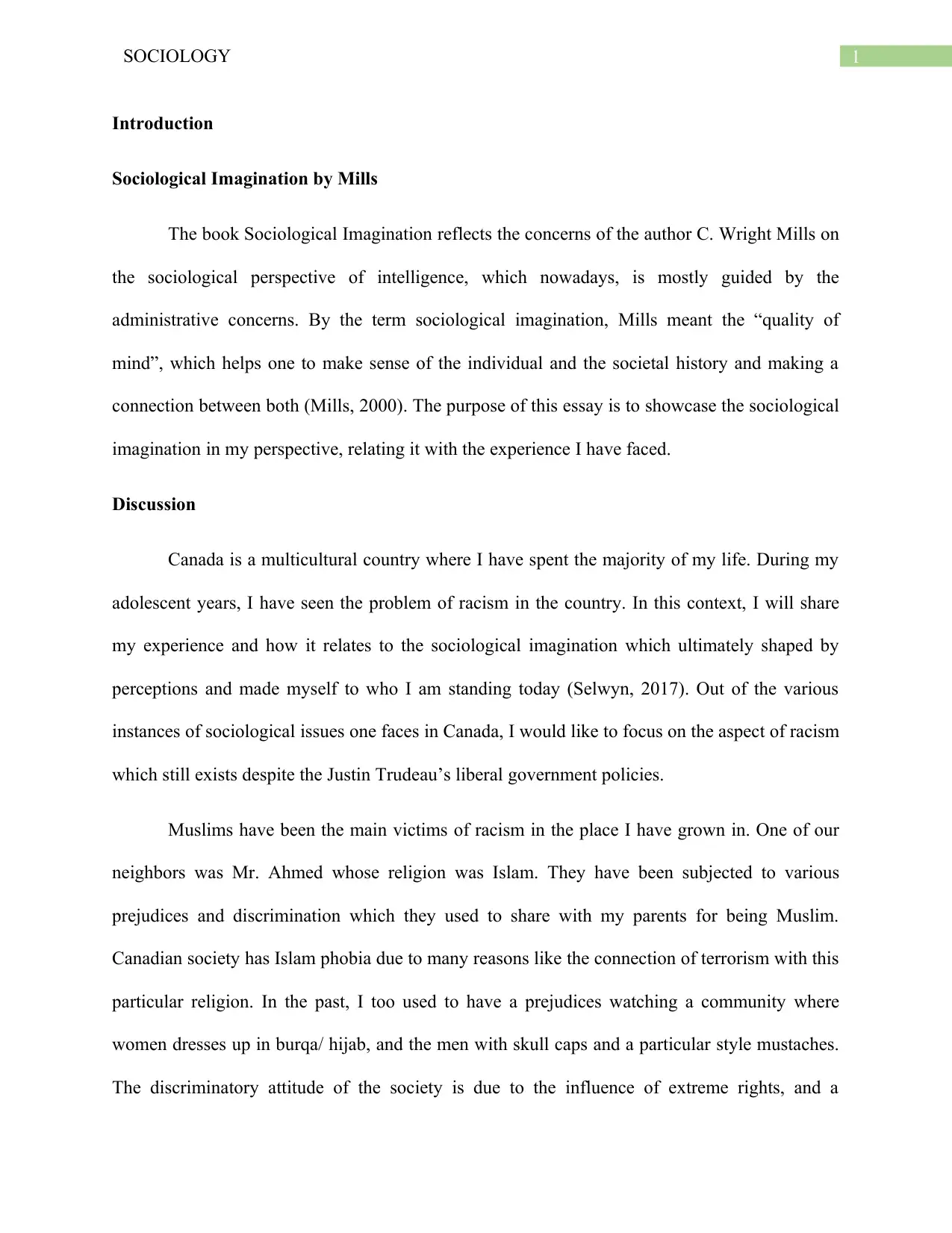
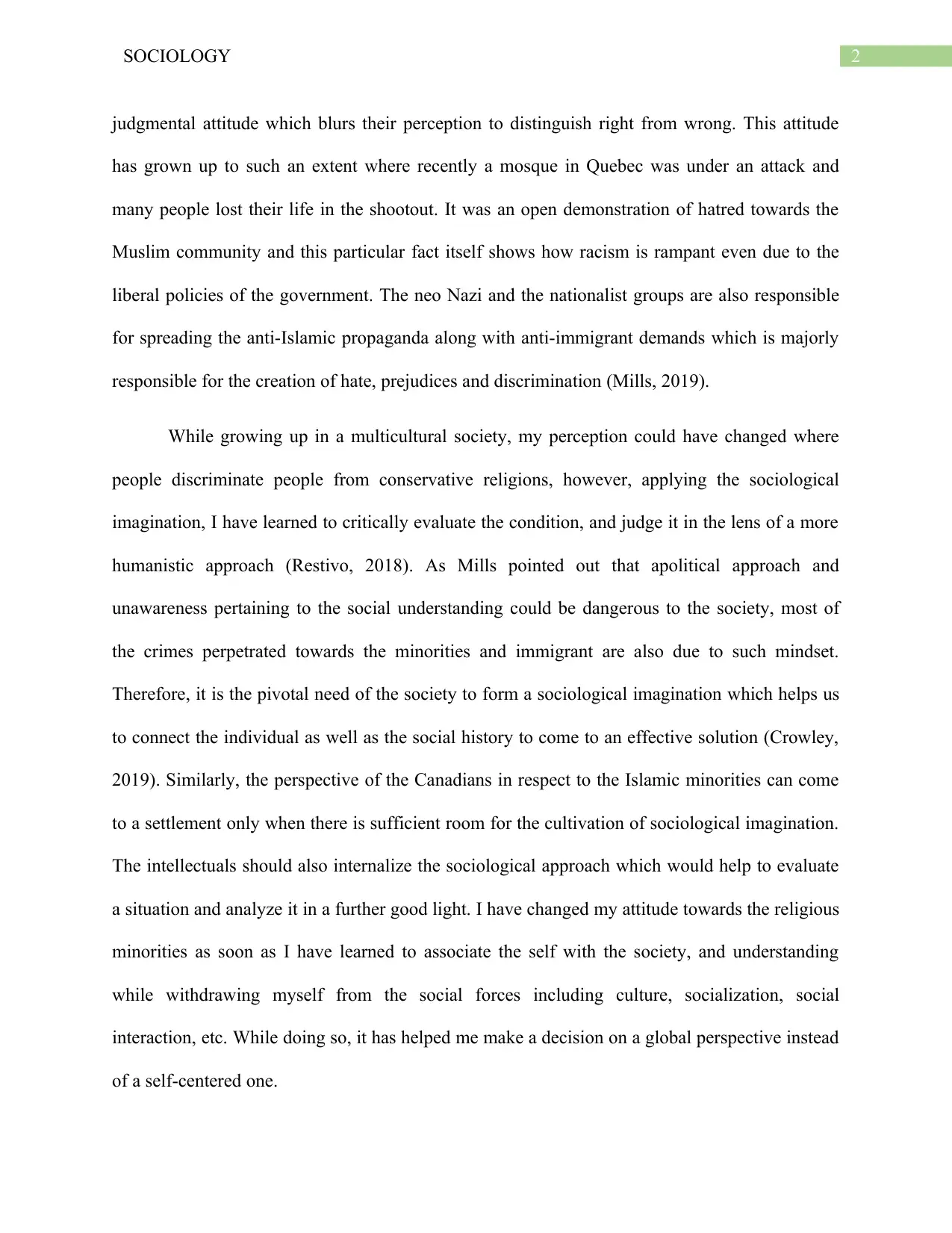

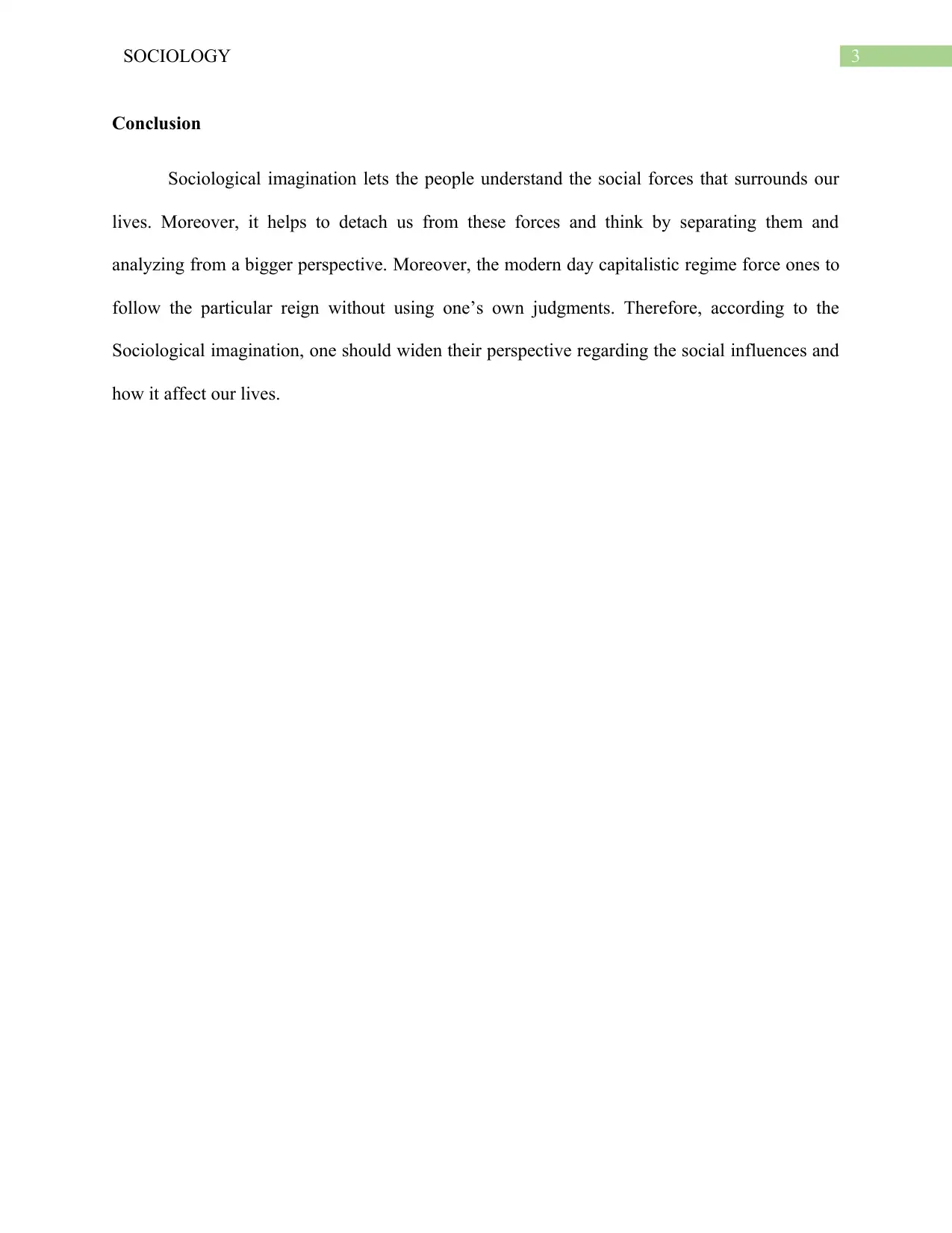
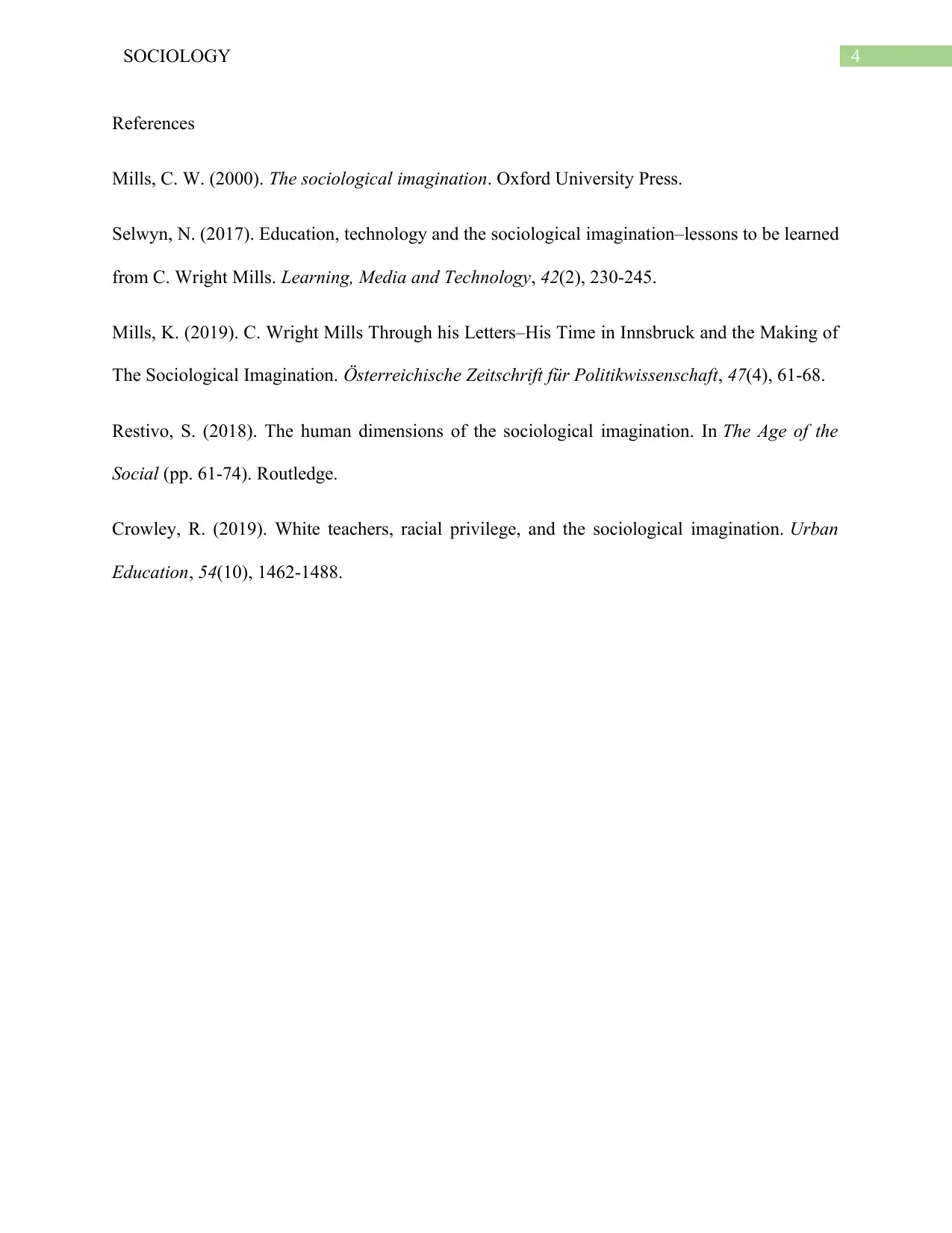






![[object Object]](/_next/static/media/star-bottom.7253800d.svg)